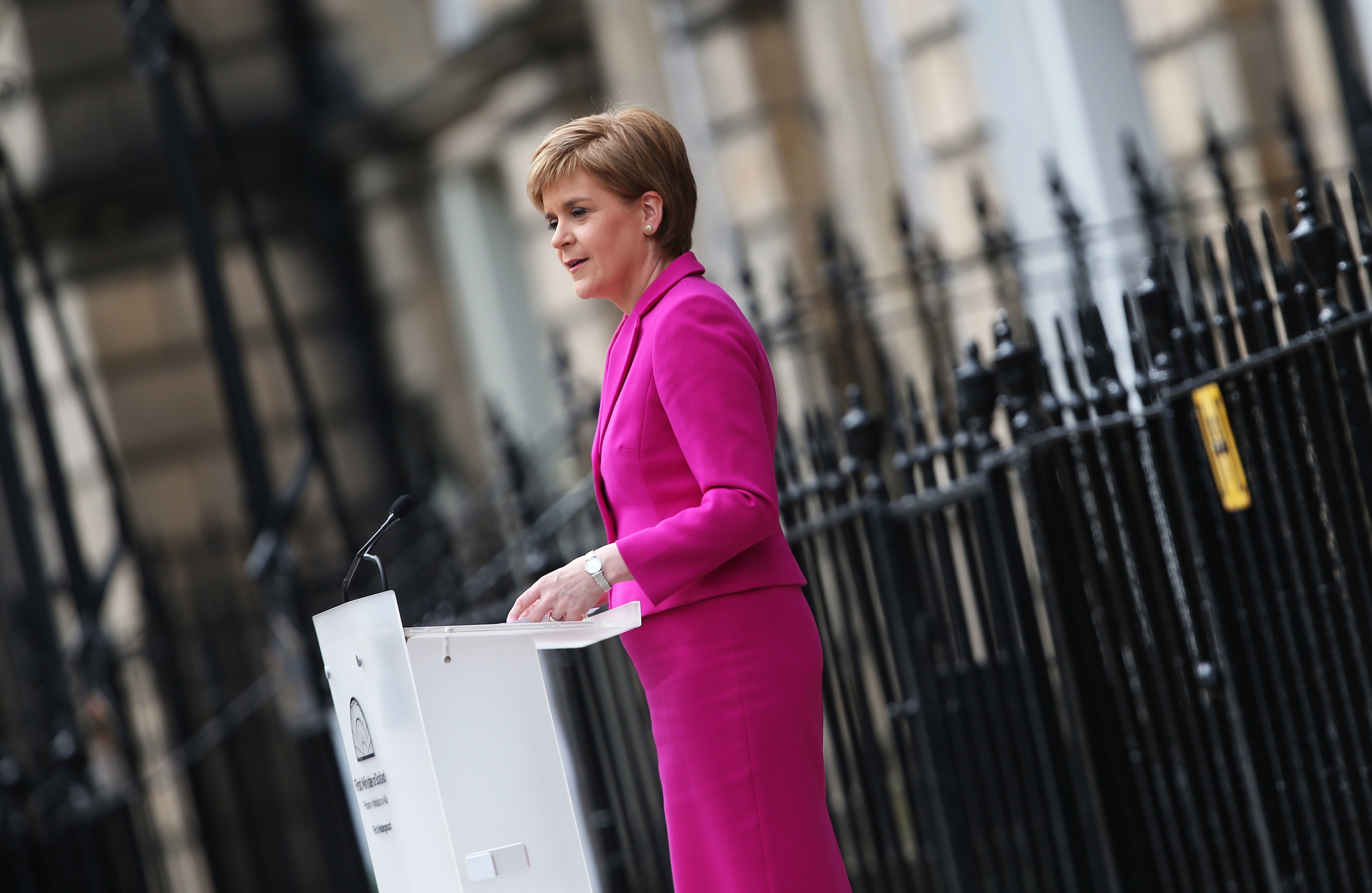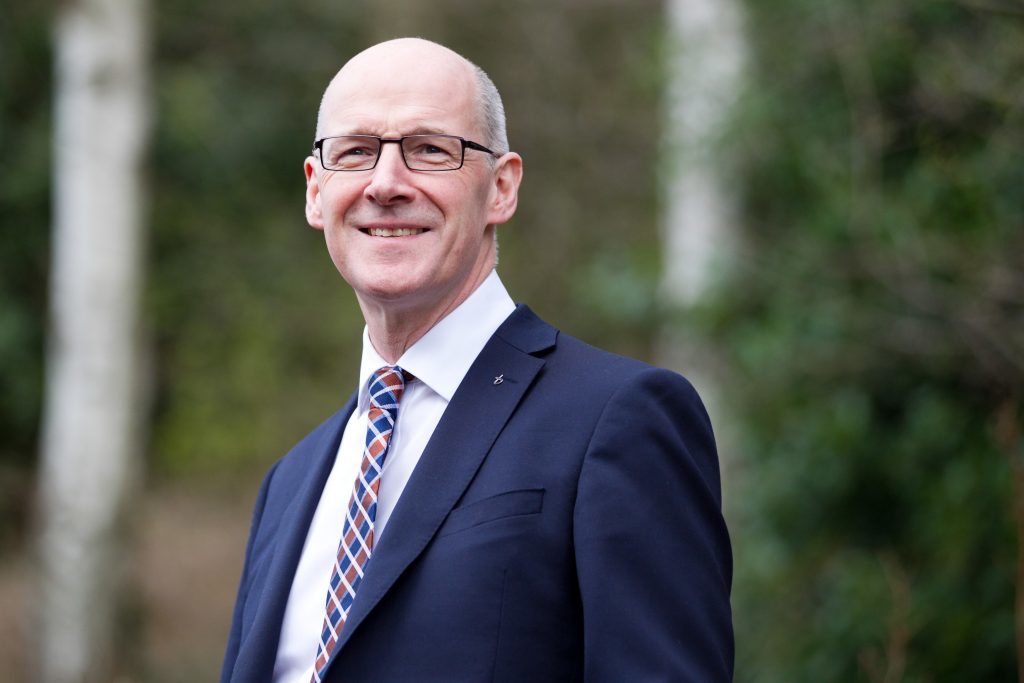Nicola Sturgeon has vowed to lead an “inclusive” minority government following a Holyrood election campaign defined by constitutional divisions.
The First Minister said the SNP had been given an “unequivocal mandate” to govern, although the party did not win the majority predicted by polls.
It followed a seismic election where the Conservatives capitalised on Scotland’s unionist vote to slam Labour into third place.
Speaking on the steps outside Bute House, Ms Sturgeon said: “The government I lead will reach out.
“We will govern with conviction and determination but also with humility and a willingness to listen and to learn from the ideas of others.
“And on the question of independence, the SNP will make our case with passion, with patience and with respect.
“But our aim is to persuade, not to divide. We will always respect the opinion of the people – now and in the future – and we simply ask that other parties do likewise.”
Sources close to the First Minister indicated she would consider different offers for each opposition party when it came to persuading them into back SNP policy at Holyrood and ensure it becomes law.
The SNP have been far more cautious on tax than the Scottish Greens, who were seen by some as potential allies because both parties favour independence, and are also against income tax hikes proposed by Labour and the Liberal Democrats.
When it comes to a budget, the Conservatives have made big play of being close to the Nationalists in some areas but any easy deal is unlikely between the Scottish Government and its official opposition.
Deputy First Minister and Finance Secretary John Swinney made it clear any deals must be based on fiscal competence.
He told The Courier: “We’ve always been a government that has looked to govern by a broad consensus and on countless issues, even when we were in majority, we have had some of the opposition parties with us on a variety of different issues.
“But what the First Minister made clear was that she will lead an SNP government, she will not be pursuing any formal arrangement with any other parties.”
Perthshire North MSP Mr Swinney added: “The issues will be no different to the issues we faced when we were a minority government, even a majority government when I tried to find common ground with other political parties and succeeded in securing that on different occasions.
“There will be times where we are able to agree points with other political parties, there will be times where we have to take difficult decisions but ultimately on the budget decisions parliament has to accept it has to live within its means.
“All the numbers have to add up at the end of the process. That’s the world I live in and have lived in for the past nine years.”
The SNP governed with 47 MSPs from 2007 until 2011 with then leader Alex Salmond and his team negotiating as a minority administration.
Although it was largely stable, a shock election was almost called mid term when the SNP struggled to garner enough support for their 2009 budget before it eventually passed.
Ms Sturegon highlighted policies which have broad support amongst multiple parties as she attempted to set the scene for deal making.
Education is seen as an area of priority across the chamber, although there have bee disputes around funding.
The SNP leader said: “I made clear in this election that education will be the defining and driving priority of my tenure as First Minister – and that I expect to be judged on it. I reiterate that today.
“Education is my passion and priority, but I was heartened that all parties chose to put a clear focus on it.
“I hope we can put party differences aside and work together.”
Ms Sturgeon also cited climate change, transforming the economy and mitigating austerity as areas of common cause between the parties.
“We will govern with conviction and determination, but also with humility and a willingness to listen and to learn from the ideas of others,” she said.
The SNP’s election manifesto stated the Scottish Parliament should have the right to hold another referendum if there is “clear and sustained evidence” that independence has become the preferred option of a majority of the Scottish people.
She added: “I have a duty to rise above party politics and to govern in the best interests of all of our country.
“My pledge today is that I will always seek to do that.”

